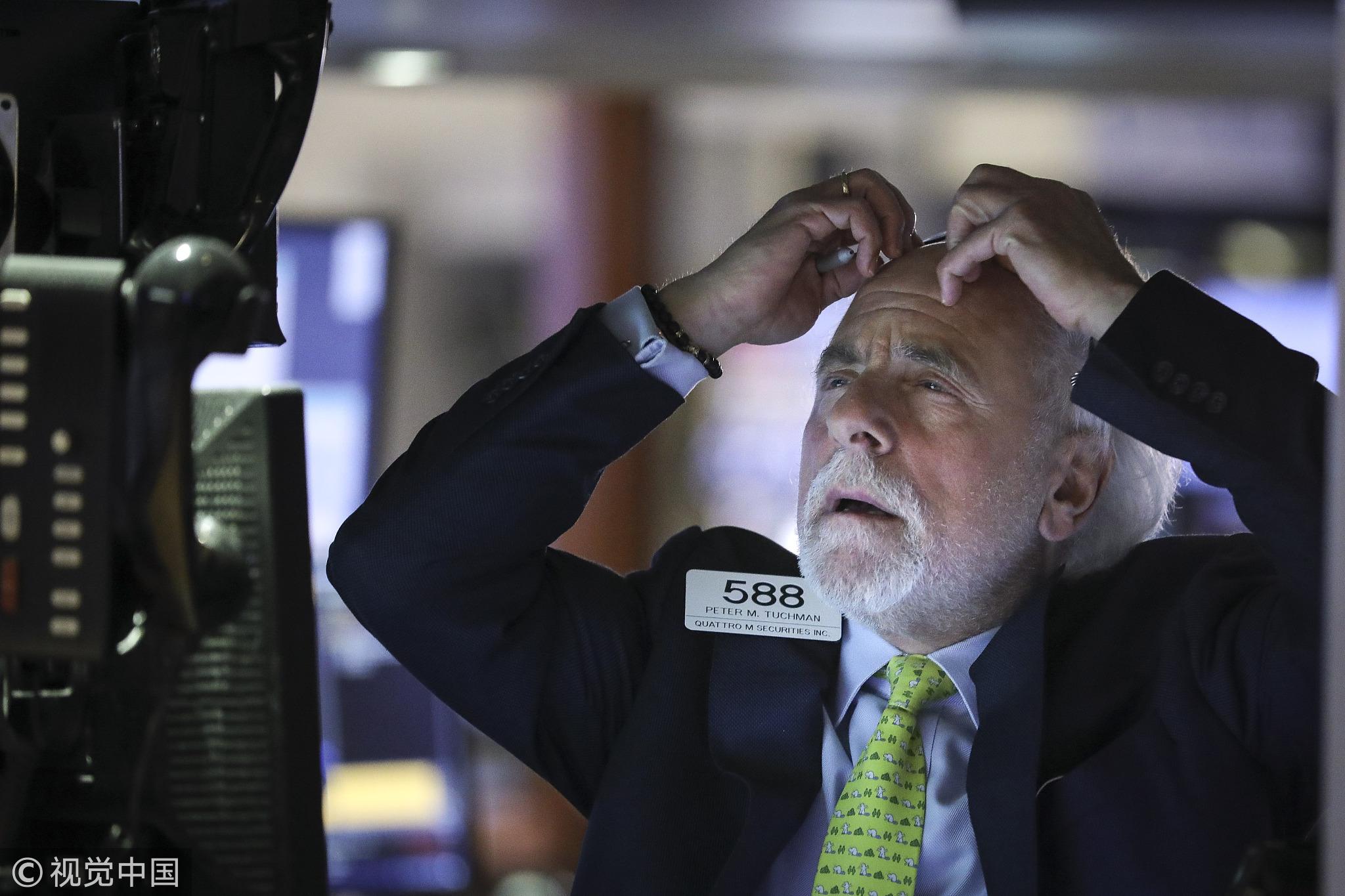
Opinions
16:49, 27-Nov-2018
Opinion: The Current Financial Bear Market- is it due to Economics or Investor Psychology?
Updated
16:47, 30-Nov-2018
Richard Fairchild

Editor's Note: Richard Fairchild is an associate professor at Finance of School of Management in the University of Bath. The article reflects the author's opinion, and not necessarily the views of CGTN.
The financial markets are entering a very uncertain and turbulent period. All of the global stock markets have experienced massive declines and downturns in recent days. For example, according to CNN, The Dow has fallen 2,500 points since early October. Some market analysts have argued that we are facing a global "bear market."
Tech stocks are being hit particularly hard. According to CNBC, tech's FANNG stocks (Facebook, Apple, Amazon, Netflix, and Google) have lost more than 1 trillion U.S. dollars in value from recent highs.
Is this a rational market-investor reaction to troubled times in the "real" global economy, which is facing issues such as Brexit, trade wars and general economic uncertainty?
Within the standard rational economics paradigm – "homo economicus" – the Efficient Market Hypothesis posits that stock market values and indices are very closely aligned with firms' true underlying fundamentals: rational price-taking investors are prepared to pay a "fair price" for their shares, which is determined by the forces of supply and demand reaching a rational equilibrium price in the financial markets.

A trader works at his desk during the closing bell on the floor of the New York Stock Exchange, November 20, 2018. /VCG Photo
A trader works at his desk during the closing bell on the floor of the New York Stock Exchange, November 20, 2018. /VCG Photo
Behavioral finance examines financial markets in the real world; populated by human investors and managers, subject to psychological biases, flaws and emotions. In this world, the Efficient Market breaks down, and stock prices and indices can diverge widely, and wildly, from the underlying fundamentals.
Furthermore, behavioral finance examines collective investor sentiment and herding behavior. Thus, at certain periods, the collective mood of the market can be extremely positive, overconfident, exuberant, excitable, creating asset pricing bubbles. The whole market herds, piling into buying stocks.
At certain trigger-points, the collective mood may dramatically switch to extreme caution, pessimism, depression and reverse herding occurs, with mass sell-offs of shares, bursting the bubble and causing prices to crash down.
Some commentators are calling the current downturn a "Market Correction," implying that the market has recently been running up an overvaluation due to investor overconfidence and exuberance. One lesson from behavioral finance is that, when the bubble bursts, we do not merely face a "correction."

Santa Claus pays a visit on the floor at the New York Stock Exchange, November 21, 2018. /VCG Photo
Santa Claus pays a visit on the floor at the New York Stock Exchange, November 21, 2018. /VCG Photo
Due to investor psychology, emotions, herding behavior and collective sentiment, financial markets can overcorrect, and can crash down irrationally through the true fundamental value, resulting in massive selloffs and huge undervaluation.
It is interesting that tech stocks have been hit particularly hard, compared to traditional stocks. This has parallels with the high-tech or dot-com bubble of the 1990s where the Nasdaq rocketed from 1,000 in 1995 to more than 5,000 in the year 2000, but then crashed back down when the bubble burst, and panicking investors dumped their assets over the next two years.
Interestingly, CNBC (September 11, 2018) predicted that the US-China trade war could directly bring about the onset of a bear market. This prediction is based on economic and behavioral scenario modeling by experts at FactSet. Therefore, when operating in the financial markets, investors need to understand that the markets are driven both by economic and psychological factors.
(If you want to contribute and have specific expertise, please contact us at opinions@cgtn.com)

SITEMAP
Copyright © 2018 CGTN. Beijing ICP prepared NO.16065310-3
Copyright © 2018 CGTN. Beijing ICP prepared NO.16065310-3